The impacts of serving in the Gulf War left John with crippling, severe anxiety. A spirited hound who needed a home would be just what the Army veteran needed to regain his life.
Soldiering on
Enlisting in the Army fulfilled a lifelong dream for John. He served for eight years as a top secret courier, including in support of Operation Desert Storm.
Memories from John’s two tours of duty are often painful. Among the most vivid is an experience that highlighted the sheer inhumanity of war.
“Flying over burning oil fields in Kuwait,” he recalls, “which brought home man’s capability to destroy one other.”
John separated from the Army many years ago. However, he is still plagued with severe anxiety stemming from his wartime service.
Invisible wounds
After leaving the military John and his wife Jeanie settled in Maryland, where they both work from home.
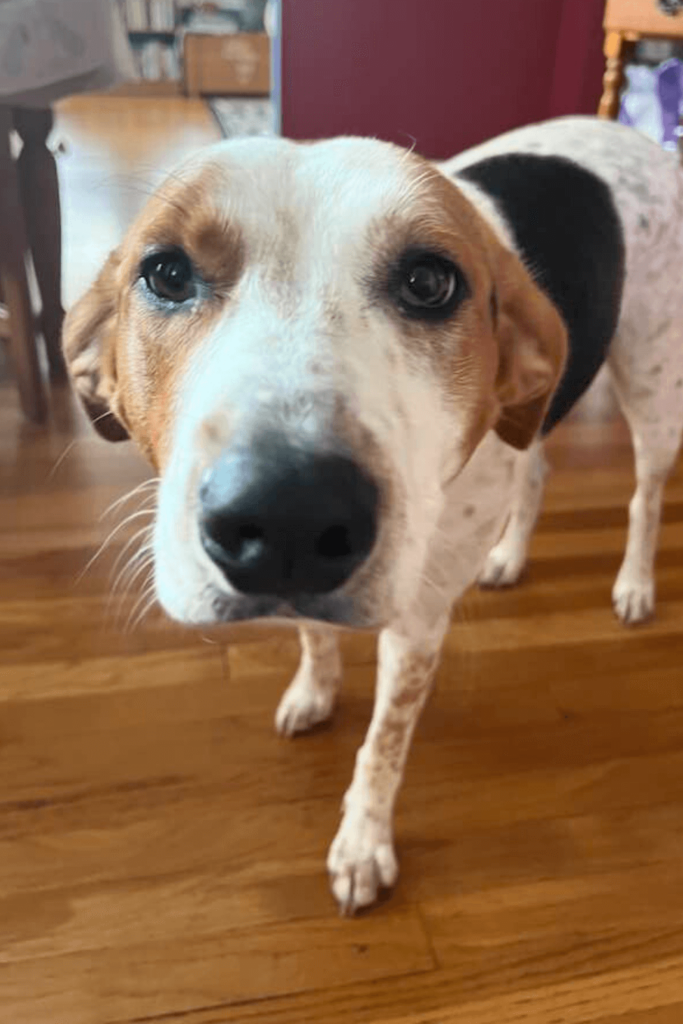
“She’s from South Africa, which has become one of my favorite countries to visit,” he shares.
“I’m a WWII re-enactor, but haven’t participated much recently. I hope to change that soon.”
For many years the couple shared their hearts and home with a pet dog, whose passing was particularly hard for John. It meant a resurgence of the invisible wounds of war that have haunted him from his time in the Army.
“Our 16-year-old Schnauzer died last year. It was a huge loss,” he shares.
“A few months later we decided it was time to get a new dog. I was struggling with anxiety, and looking after an animal gets you out of your own head.”
Pets live in the moment. They often demand our immediate attention, which in those moments give us distance from our troubles. And it is from that distance that we acquire new, often healthier perspectives about our own challenges.
Jeanie was determined that they would adopt a rescue dog. While researching shelters in their community she discovered Pets for Patriots and our companion pet adoption program for military veterans.
Living with PTSD
It is estimated that more than 20 percent of Gulf War veterans suffer with Post Traumatic Stress Disorder, or PTSD, at some time in their lives.
Only veterans of the Iraq and Afghanistan wars eclipse this incidence of PTSD, believed to be as high as almost 30 percent.
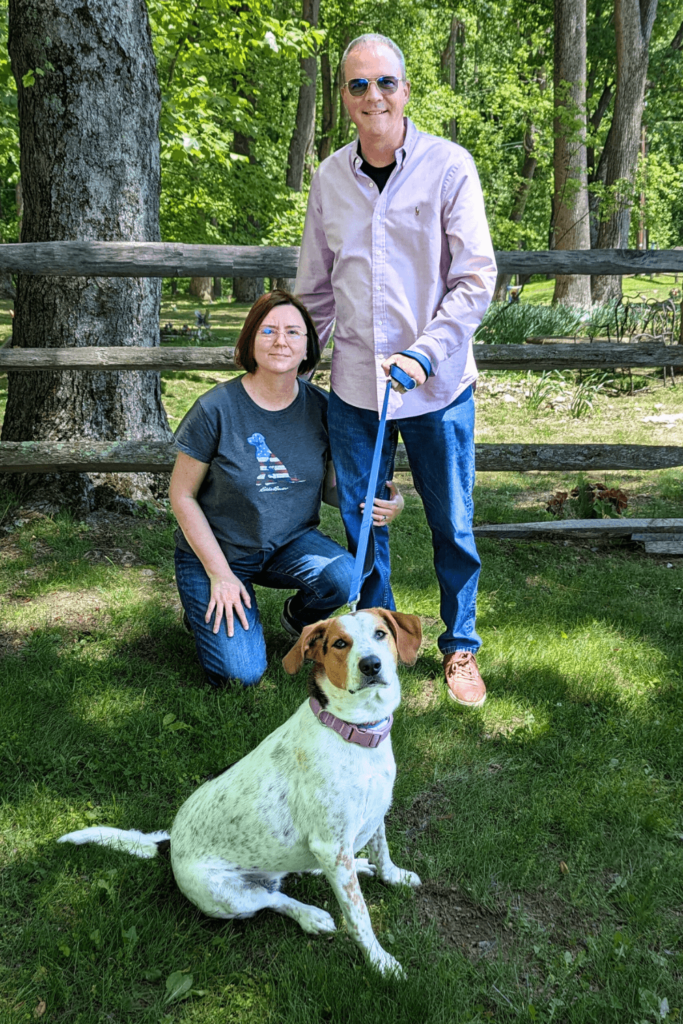
John is among those living with these invisible wounds of war, which worsened as a result of isolation from Covid-19 lockdowns.
“I have PTSD from the Gulf War. It comes and goes, but when the pandemic hit, my anxiety kicked into overdrive,” he shares.
“I was having panic attacks every day, sometimes several times a day.”
Thankfully, the Army veteran sought treatment and is improving. Soon a spirited rescue dog would come to his aid as well.
Sobering statistics
Since 2014 Baltimore Humane Society has partnered with us to give veterans the emotional support they need while saving animals no one wants.
Our program focuses solely on those dogs and cats most overlooked for adoption who are at greatest risk of death or chronic homelessness.
Baltimore Humane Society offers free adoptions and gives 10% off wellness fees at their clinic for veterans adopting through our partnership. As of this writing more than 110 adoptions have been made through our work together.
John visited the shelter hoping to find a four-legged respite from his severe anxiety.
It was mid-may 2023; Cali was an adult tricolor hound mix waiting for her hero. Like many shelter animals there is little known of the circumstances that led to her predicament.
Millions of dogs and cats enter animal shelters every year. On average the number who are put to death for lack of anyone who will adopt them could fill all of the Major League Baseball stadiums in the country – combined.
Fortunately Cali would not add to that tragic statistic.
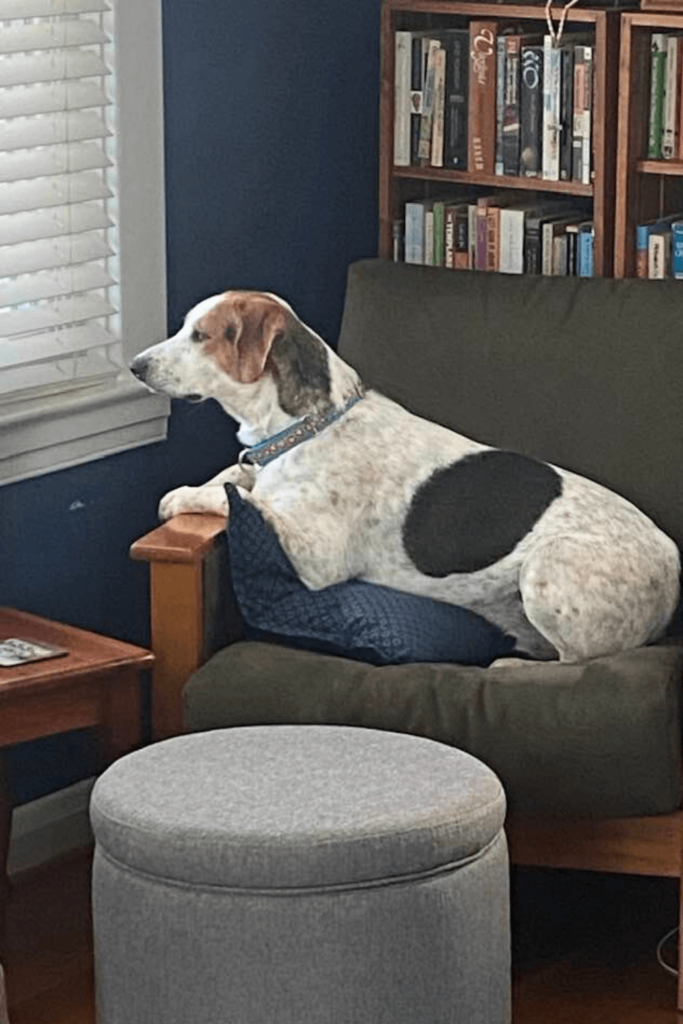
A little over a week after being approved into our program John and his wife welcomed Cali home. John credits the energetic hound for helping him reclaim some peace in his life.
No surrender
John appreciates how easy it is to be part of our program.
The overwhelming majority of veterans who live near one of our shelter partners and provide proper documentation to us are approved within two business days.
“The process of adopting through Pets for Patriots was easy and their follow up has been excellent,” he says.
It was during a post-adoption outreach that we learned Cali was showing signs of resource guarding. This is a serious behavior issue that, if not addressed, can spiral out of control to the point where an animal would be surrendered – and possibly euthanized.
But thanks to a generous grant, Pets for Patriots has a dog training pilot program to help remedy serious behavior issues that could lead to a dog’s surrender. We invited John and his wife to participate in training sessions with Cali.
The invitation came on the heels of another veteran in our pilot program who had success mitigating her adopted dog’s guarding behaviors.
“Cali guards her food and gets snappy if we get too close. But we’re working with a trainer and making good progress,” John shares. “The sessions are paid for by Pets for Patriots, which definitely helps. Dogs aren’t cheap.”
“…always up for a cuddle”
Some veterans who live with PTSD or other forms of severe anxiety fall into a pattern of destructive behaviors. They may abuse alcohol or drugs, self isolate, or have angry outbursts at those around them.
Thankfully John sought professional help – and to complement his treatment he adopted a four-legged bundle of sheer joy. The Army veteran credits Cali for restoring him to a more tranquil, grounded life.
“Cali has played a big part in helping me get back on my feet,” he shares. “There’s something about coming home to a dog whose whole body wags when she greets you. She’s very smart, but at the same time a complete goofball.”
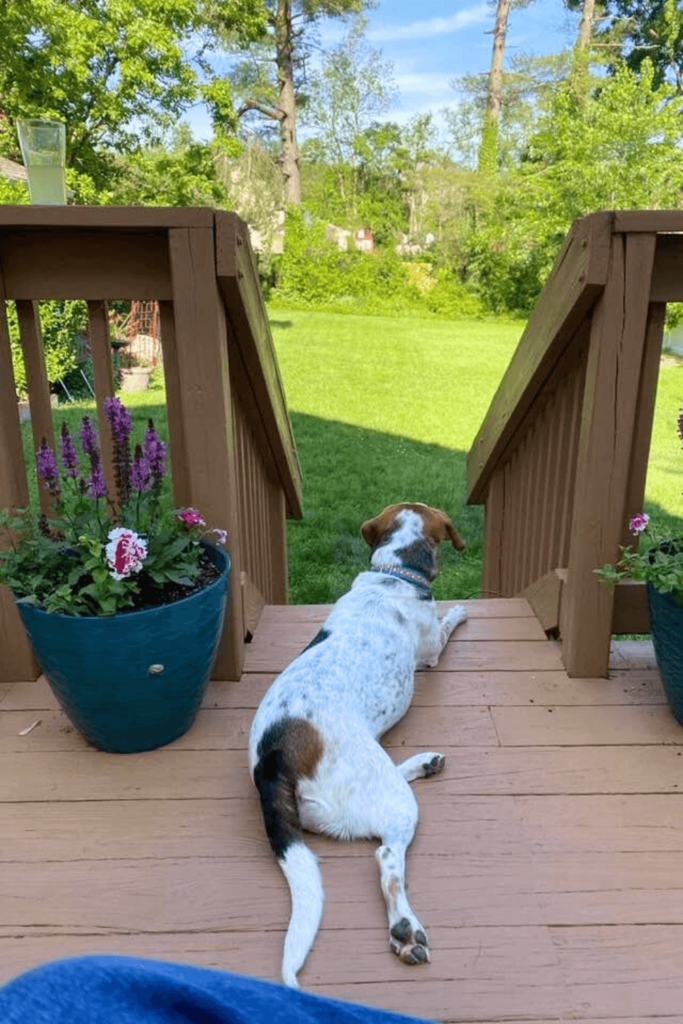
Somehow Cali senses when John needs her. It is not unusual for a companion pet to be so tuned in to her person. And Cali never hesitates to show her affection, whether it is invited or not.
“She’s always up for a cuddle and seems to think she’s a lapdog, all 55 pounds of her,” John says. “Her favorite spot is sitting on my feet. Not next to them – on them.”
However, Cali is more than a cuddlesome companion. She is an antidote to the severe anxiety John lives with as a function of PTSD.
Perhaps it is Cali’s carefree nature, her sheer zest for life, or her watchfulness over her new domain. Or maybe it is much simpler.
Cali helps John live in the moment.
“I like to sit out on our back deck after work,” he shares, “and watch her chase any squirrels that dare to come in her yard.”


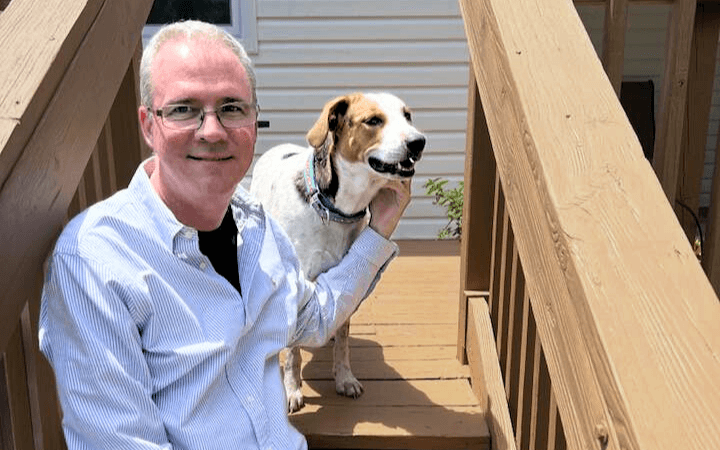


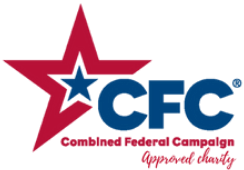

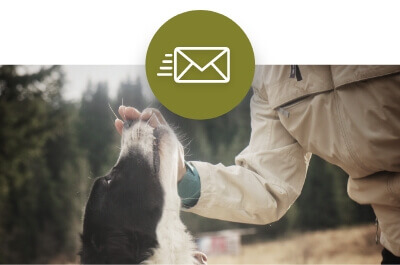
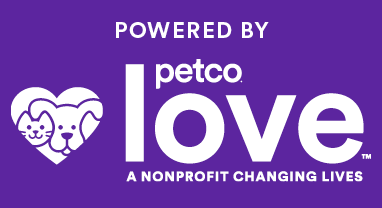


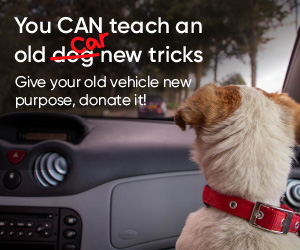
0 Comments